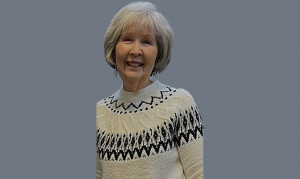For quite a number of years I have been aware that people could be “ordained” to the ministry online or through the mails. It really doesn’t take much. One fills out the short application, encloses a check for $35 and up and, just like that, one can either download their “ordination” certificate or it will come courtesy of the U.S. Postal Service. It’s not a scam and it is legal. All because of the laws of the land.
While the “separation of church and state” is not found in the constitution of our land — the document guarantees freedom OF religion, not freedom FROM religion — it still has become an operating principle. Thus, the courts are loath to meddle in church affairs if they can avoid it.
So, while other professions are likely to have state regulations and statutes governing them, and, while the states, or agencies recognized by the states, may test, register, license, and certify those in these professions, it does not do so with the church and, hence, the ministry. Each denomination pretty much sets its own standards and regulates itself.
For example, some denominations require a bachelor’s degree from a regionally accredited college or university and a Master of Divinity, a three-year program, from a seminary accredited by the Association of Theological Schools, or ATS. On the other hand, people may also come together, form a church, and, in the case of, say, an independent Baptist church, ordain a person without any formal training whatsoever. There, the safeguard is presumably that the person is well known to, and approved by, the congregants.
But in the case of so-called “ordinations” over the internet, there are really no requirements nor are there any safeguards. One can claim to be a minister without ever having set foot in a church or other religious house of worship. In fact, one not even need to be human, as the guy who sent in papers and fees a few years ago and had his dog “ordained” discovered.
All of this makes a mockery of the ordained ministry which, I suspect, is why some people actually do it. So these “ordained” men and women perform marriages, do funerals, and possibly even do “pastoral” counseling.
Imagine this: A physician about to do surgery on you who became a “doctor” over the internet. Or an airline pilot printing out his own pilots’ license on his home printer. Or a lawyer representing you who was a dishwasher only last week in a greasy spoon restaurant. Why not let those wanting to join the military skip basic training and boot camp and just send in $35 to become a “soldier,” “sailor,” “airman,” or “Marine”? Why not just let people dress up and claim to be cops? Or firefighters? Or paramedics?
Because we wouldn’t accept that. We have too much respect for those professions and too much rides on those who practice them being legitimately prepared and approved. I said earlier that it’s not a scam. I think, after reflection, that it really is. It’s people presenting themselves as something they really are not.
And the “ordination” mills? Oh, they make loads of money. Is it legal? Yes, under the so-called “separation or church and state” practices. Is it legitimate? Not if we judge it by the same standards that we do other professions that touch human lives and families and have the ability to do great harm.
If one wants to be a minister, a rabbi, an imam, or some other religious leader, then do yourself and everyone else a favor and do it right. Do the hard work, put in the study, be mentored, do the internships, and put in the time instead of deceiving yourself and others who might not know the difference.
So, beware. There are a great many frauds and con artists out there. Some of them just might be “ministers.”
[David Epps is the pastor of the Cathedral of Christ the King, Sharpsburg, GA (www.ctkcec.org). He is the bishop of the Mid-South Diocese which consists of Georgia and Tennessee (www.midsouthdiocese.org) and the Associate Endorser for the Department of the Armed Forces, U. S. Military Chaplains, ICCEC. He may contacted at [email protected].]












Leave a Comment
You must be logged in to post a comment.